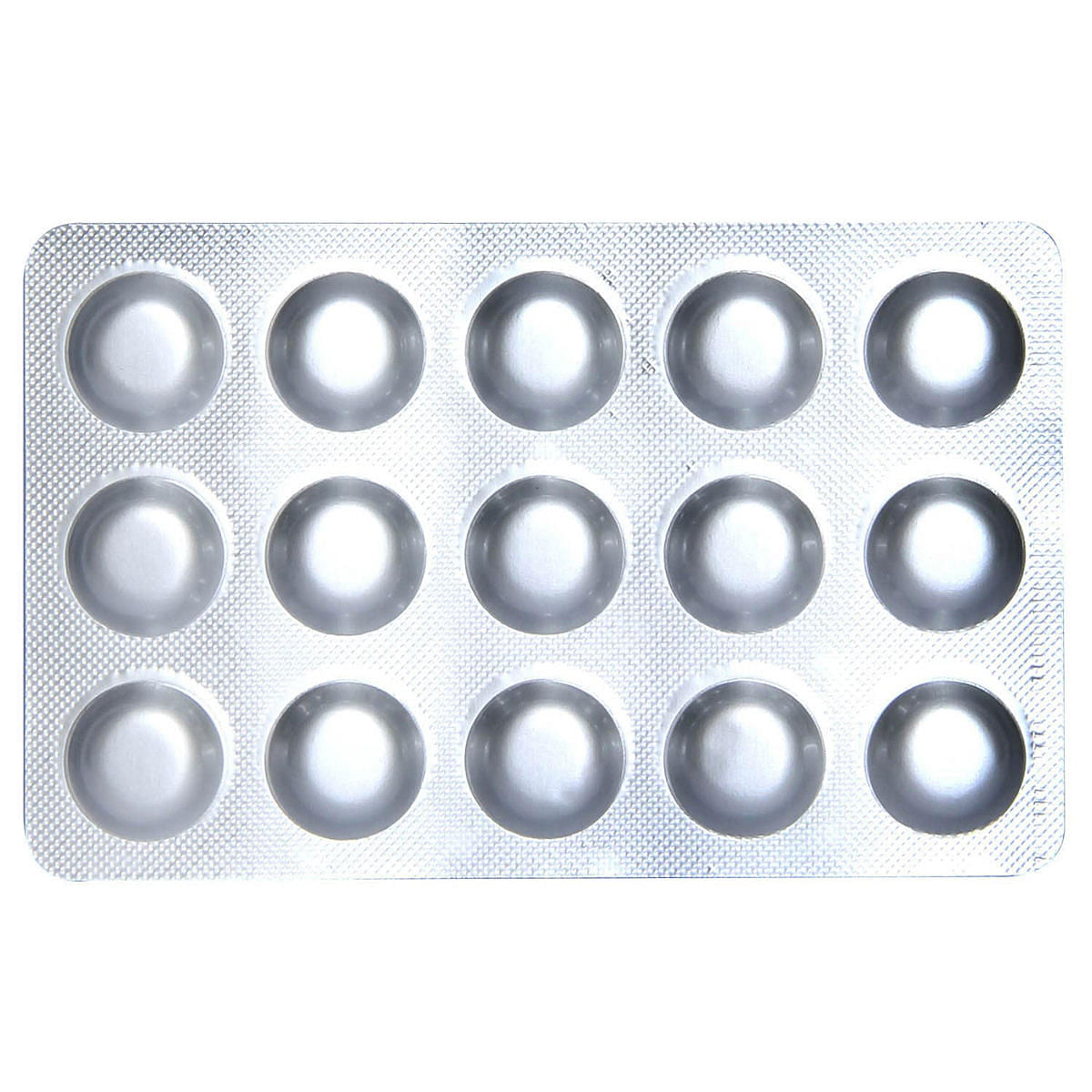
Ufihist 8mg Tablet
Manufacturer
Zeeford Life Sciences
Salt Composition
Betahistine (8mg)
Key Information
Short Description
Ufihist 8mg Tablet is used to prevent and treat a disorder of the inner ear known as Ménière’s disease, which includes symptoms such as dizziness, ringing in the ears, and loss of hearing.
Dosage Form
Tablet
Introduction
Ufihist 8mg Tablet should be swallowed whole with water and taken at the same time(s) each day to get the most benefit. Your doctor will decide what is the correct dose to relieve your symptoms and how often you need to take it. You may need to take this medicine for several months and you should take it for as long as prescribed by your doctor even if you start feeling better. The most common side effects include headache, feeling sick, and indigestion (dyspepsia). You may also get stomach pain and bloating. Taking the medicine with food can help reduce stomach problems.
Directions for Use
Take this medicine in the dose and duration as advised by your doctor. Swallow it as a whole. Do not chew, crush, or break it. Ufihist 8mg Tablet may be taken with or without food but it is better to take it at a fixed time.
How it works
Ufihist 8mg Tablet is a histamine analog. It works by improving the blood flow in the inner ear which reduces the pressure of excess fluid there. Excess fluid can send signals to the brain causing nausea, dizziness or spinning sensations (symptoms of Ménière's disease). Ufihist 8mg Tablet additionally dampens down the nerve signals sent from the inner ear to the brain relieving the symptoms of Ménière's disease.
Quick Tips
You have been prescribed Ufihist 8mg Tablet to relieve vertigo (dizziness), hearing problems, and tinnitus (noise in the ear) associated with Ménière's disease It can only decrease the number and severity of attacks but may not completely stop them Taking it with food can help reduce stomach problems Take it at the same time each day to maintain a steady amount of the medicine in your body Inform your doctor if you have a history of stomach ulcer, asthma, or low blood pressure Inform your doctor if you are pregnant, planning pregnancy, or breastfeeding Do not stop taking the medicine suddenly without talking to your doctor first
Related Medicines

Vertin 8 Tablet

Betavert Tablet

Venhist 8mg Tablet

Partin 8mg Tablet

Vertizor 8 Tablet

Gidinil 8mg Tablet

Bejoy 8mg Tablet

Egeptin 8mg Tablet

Betastin 8mg Tablet

Alvert 8mg Tablet
Frequently asked questions
What is Meniere's disease? Does it go away?
Meniere's disease is a disorder affecting the balance and hearing organs in the inner ear. Symptoms can include vertigo, fluctuating hearing loss, tinnitus (ringing in the ears), and pressure sensations in the ears. Along with these, there may be dizziness leading to nausea and vomiting. Treatment for Meniere's disease depends on individual factors, so discussing it openly with your doctor is crucial to determine the best treatment plan for you.
Is Ufihist 8mg Tablet effective?
Ufihist 8mg Tablet is meant to be taken as prescribed by your doctor. Do not discontinue use even if symptoms improve, as stopping prematurely might lead to symptom recurrence or worsening.
What are the triggers for Meniere's disease?
Meniere's disease may be triggered by factors such as stress, overwork, fatigue, emotional distress, additional illnesses, and fluctuations in pressure. Additionally, certain foods like dairy products, caffeine, alcohol, and those high in sodium might trigger symptoms. A low-salt diet of 2 grams per day can help manage vertigo associated with Meniere's disease.
What if I forget to take a dose of Ufihist 8mg Tablet?
If you miss a dose of Ufihist 8mg Tablet, take it as soon as you remember. However, if it's almost time for your next dose, skip the missed dosage and take the next dose at its scheduled time. Do not double the dose to compensate for missed doses, as this could increase the likelihood of side effects.
Is stress a reason for vertigo?
Mental stress can trigger vertigo, potentially exacerbating existing forms of vertigo. However, it's essential to note that stress itself isn't a direct cause of vertigo.
What are the causes of vertigo?
Vertigo can stem from factors such as sudden drops in blood pressure or dehydration. Lightheadedness may also occur when moving quickly from lying to standing. Other potential triggers include motion sickness, certain medications, and inner ear disorders like Meniere's disease or acoustic neuroma. It is important to remember that vertigo could be a symptom of other underlying conditions such as multiple sclerosis or head trauma.
How long should Ufihist 8mg Tablet be taken?
The duration of treatment with Ufihist 8mg Tablet can vary based on individual patient response. Some individuals experience prompt relief, while others might require a longer course of treatment. Therefore, it is crucial to adhere to your doctor's prescribed schedule and patiently await the desired outcome.
What are the common side effects of Ufihist 8mg Tablet?
Possible mild adverse reactions to Ufihist 8mg Tablet may include nausea, stomach pain, abdominal swelling (distension), and bloating. To minimize these side effects, consider taking your medication with food. However, it's essential to note that the effectiveness of Ufihist 8mg Tablet might be diminished when consumed with food.
Is Ufihist 8mg Tablet effective?
Ufihist 8mg Tablet is meant to be taken as prescribed by your doctor. Do not discontinue use even if symptoms improve, as stopping prematurely might lead to symptom recurrence or worsening.
What if I forget to take a dose of Ufihist 8mg Tablet?
If you miss a dose of Ufihist 8mg Tablet, take it as soon as you remember. However, if it's almost time for your next dose, skip the missed dosage and take the next dose at its scheduled time. Do not double the dose to compensate for missed doses, as this could increase the likelihood of side effects.
How long should Ufihist 8mg Tablet be taken?
Duration of treatment with Ufihist 8mg Tablet can vary depending on individual patient response. Some people may experience quick relief, while others may need a longer course of treatment. Therefore, adhering to your doctor's prescribed schedule and patiently awaiting the desired outcome is crucial.


